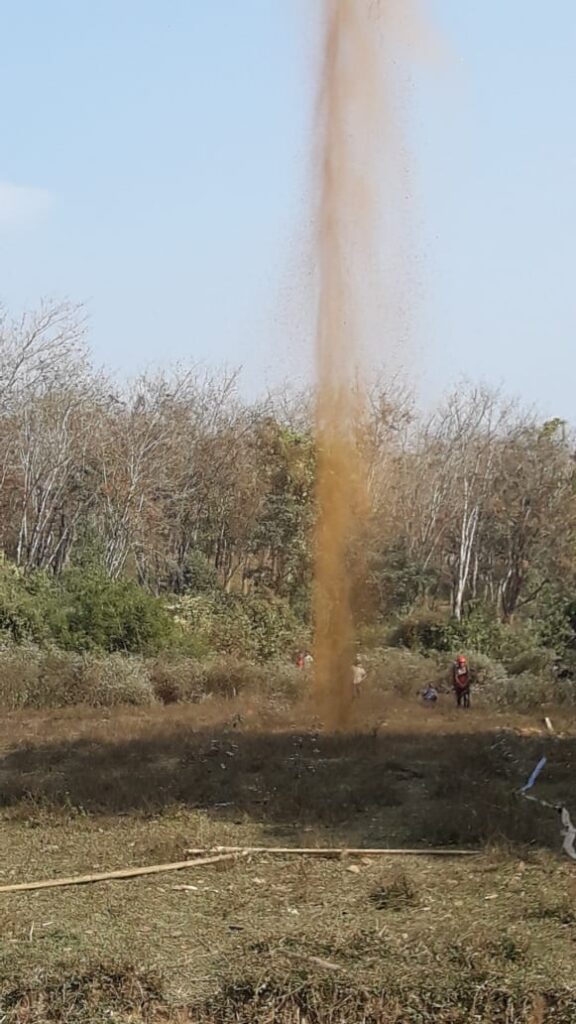The State Government of Tripura had awarded the Petroleum Exploration License (PEL) on 16.10.2019
 KRC TIMES Assam Bureau
KRC TIMES Assam Bureau

Oil India Limited (OIL), has kick-started its exploration and production operations by launching its first-ever seismic survey in the North-Eastern state of Tripura.
The beginning of the year 2021 has ushered in yet another milestone for Oil India Ltd. (OIL) with the commencement of seismic survey operations in the OALP-III block AA-ONHP-2018/5 on 17.01.2021. Geologically, the block lies in the Tripura-Cachar fold belt and is a border state of the country surrounded on all sides by the deltaic basin of Bangladesh except for a small part in north-east which adjoins the Cachar district of Assam and the state of Mizoram.
The block AA-ONHP-2018/5, located in the Santirbazar subdivision of South Tripura district in the southern part of the state, covers an area of 207.74 Sq Km and the committed work programme is to acquire 200 GLKM of 2D seismic & 185 Sq. Kms. of 3D seismic data and drill 6 nos. of exploratory wells.

The RSC (Revenue Sharing Contract) between the Govt. of India and OIL for the Block was signed on 16.07.2019. Subsequently, the State Government of Tripura had awarded the Petroleum Exploration License (PEL) on 16.10.2019. The logistics are challenging in this block and the OIL has chalked out extensive plans for seamless execution of its exploration campaign. While OIL will also be commencing execution of its field development plans in the neighbouring DSF block Tulamara, based on success in its exploration campaign the Company intends to carry further exploration activities in the State of Tripura to access more hydrocarbon resources in this gas prolific area.
Apart from consolidating its position in Northeast and Rajasthan, OIL has made conscious efforts to carry out exploration in Category II & III sedimentary basins in line with Government of India’s thrust for exploration. This is in line with the vision of Prime Minister of Atmanirbhar Bharat by enhancing domestic exploration and production and reduce dependence on crude oil imports.





